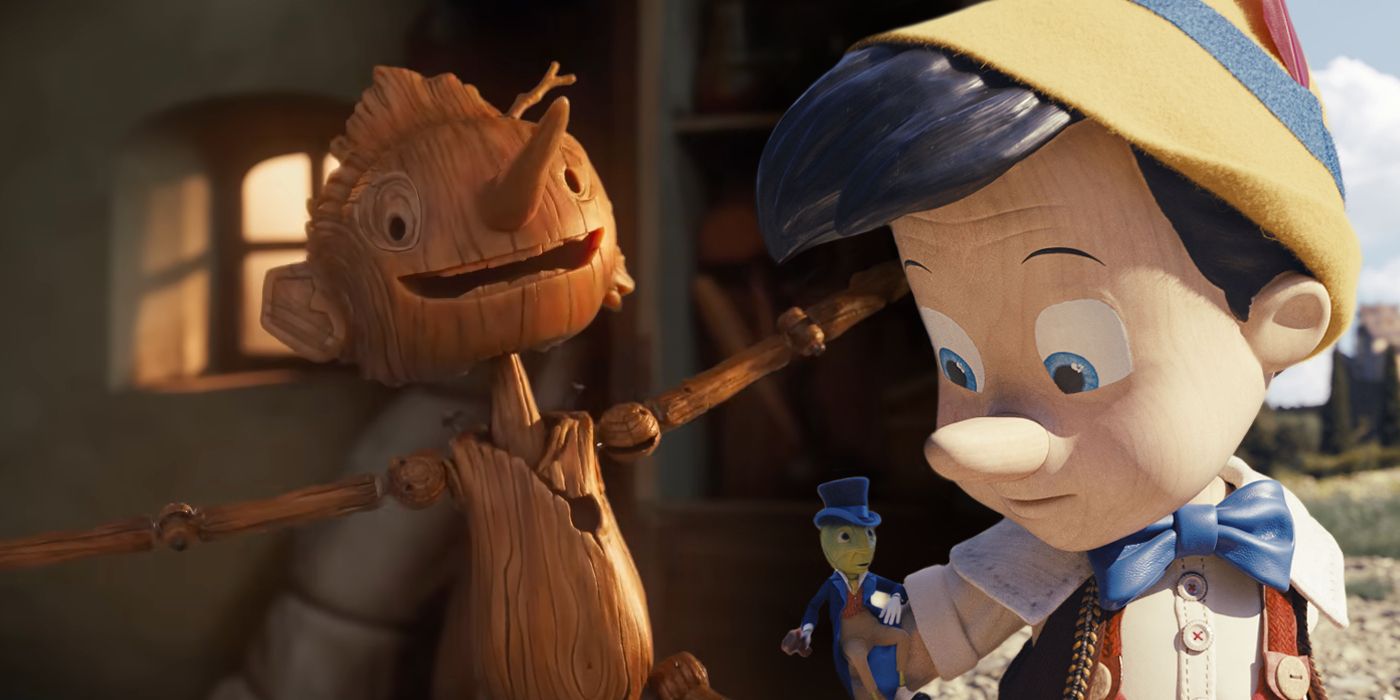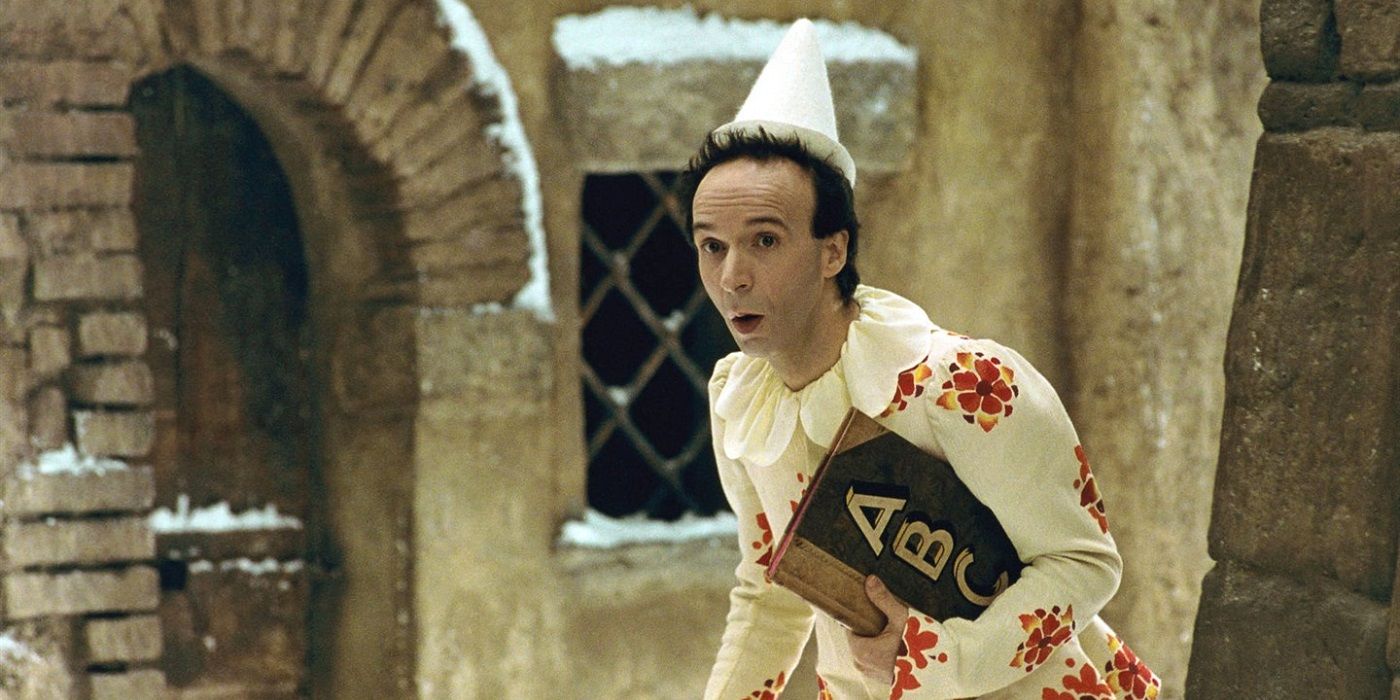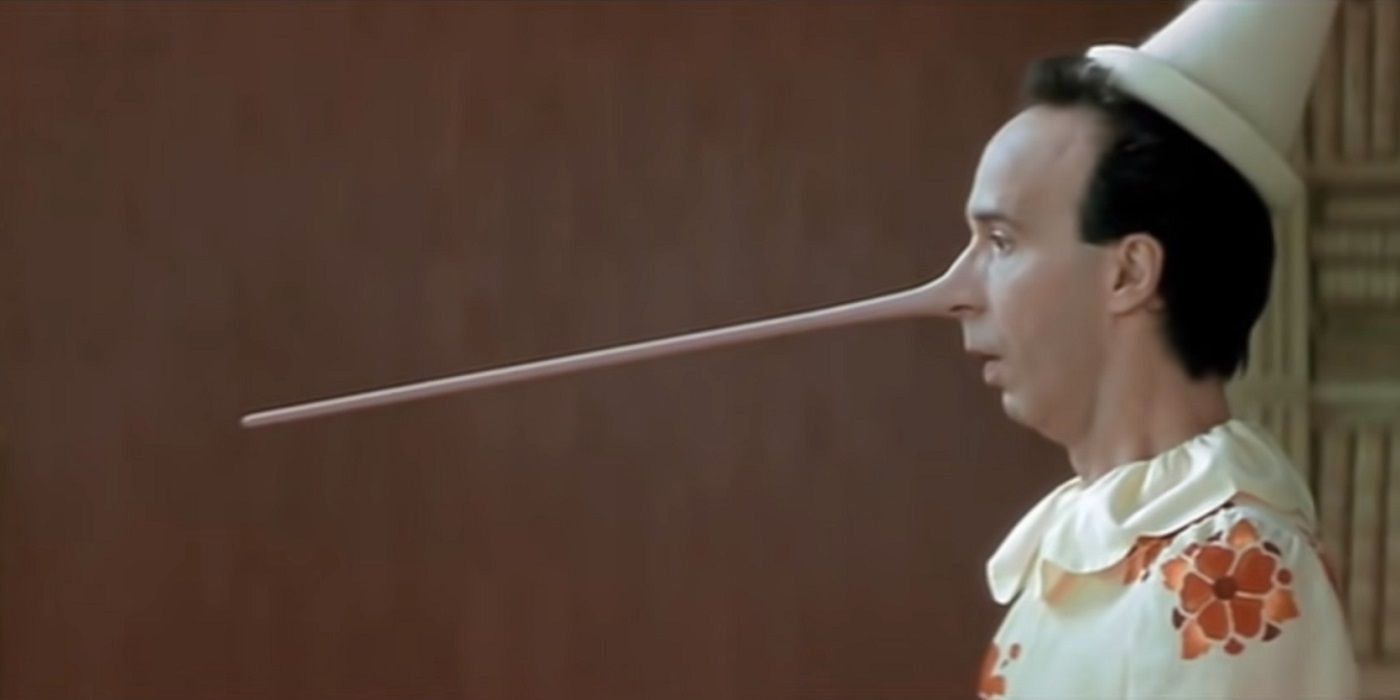2022 has an odd cinematic distinction: one could legitimately name Pinocchio as both the best and the worst movie of the year. Guillermo del Toro's new take on the famous tale is a masterpiece, combining the director's creative sensibilities with the soul of the story to create something entirely new. Conversely, Walt Disney Pictures' live-action reboot of its 1940 animated classic was an unmitigated dud: denied a theatrical release and rightfully criticized for passively rehashing one of the company's crowning achievements. The contrast couldn't be stronger, and Disney is likely breathing a sigh of relief at how quickly its misfire was forgotten.
As pro forma as it was, however, the new live-action Pinocchio is far from the worst version of the story ever told. That dubious honor goes to a 2002 production directed by and starring Italian filmmaker Roberto Benigni. It crashed and burned spectacularly upon release and has the rare rating of 0 percent on Rotten Tomatoes' Tomatometer. The scorn is well-earned, and though the director eventually rebounded with a proper mulligan, Benigni's Pinocchio might be one of the worst movies ever made.
Like Del Toro's Version, Benigni's Pinocchio Was a Passion Project
Benigni and del Toro were both at similar points in their careers when Pinocchio came along. The Mexican director recently won a slew of Oscars for The Shape of Water, including Best Picture and Best Picture. So, too, had Benigni, whose Holocaust dramedy Life Is Beautiful won him both the Best Actor Oscar and the Best Foreign Language award in 1998. Both filmmakers viewed Pinocchio as a passion project. Del Toro explained to CBS News and others that making the story was his lifelong ambition, while Benigni, for his part, told Collider in 2021 that "I love Pinocchio so much that I could play everybody, including Jiminy Cricket."
From there, however, the similarities end. Benigni -- whose comment about Jiminy Cricket hides an excess of self-regard -- conceived of the movie with himself as the titular character. That single decision resulted in a relentless creepiness from which it never recovered. The director was nearly 50 when he made the film, and the idea that he could convincingly play a child goes well beyond hubris. Nevertheless, no one could say no to him. With Oscars on the shelf and freshly minted status as an auteur, he plowed ahead and turned the movie into a waking nightmare.
Benigni's Pinocchio Is Destroyed by Excessive Ego
Ostensibly, Benigni's Pinocchio stays true to the original novel by Carlo Collodi. That includes such staples as his sojourn to Toyland, which turns him into a donkey, and the rescue of his father, who gets swallowed by a sea monster. But the choice to cast himself as Pinocchio becomes an elephant in the room, and with "the little wooden boy" onscreen almost the entire time, it all falls apart. Benigni's capering loses its charm instantly, and the sight of his middle-aged face trying to puzzle out the moral pondering of a child is singularly disturbing. No effort is made to pretend that he's made of wood either, lending tropes like his extending nose an air of Cronenberg-style body horror.
The cascading effect reverberates across every aspect of the production. In order to match the star, adults were cast in other roles intended for children -- such as Pinocchio's friend Candlewick -- and they did no better than Benigni himself. Animal figures such as The Fox and The Cat were created with minimal make-up to enhance the performers' features, which makes them look all the more unsettling. Not even The Blue Fairy can escape. She's played by Benigni's wife, Nicoletta Braschi, and the sight of a married couple playing scenes as mother figure and child feels actively unwholesome. The final absurdity comes when he becomes a "real boy" at last: only to appear as the fully adult Benigni in children's clothing.
Apologists blamed the English language dubbing for the film's abysmal reaction in America. And Benigni earned a reprieve when he starred as Geppetto in a well-regarded 2019 Italian adaptation directed by Matteo Garrone. But the flaws of his earlier Pinocchio can't be explained away by the dubbing, and while Geppetto suits him far better for obvious reasons, it can't erase what came before. For all his vision and dedication, del Toro could divorce his ego from the movie he made. Benigni couldn't, and the results became a cautionary example so powerful that even his wooden-headed protagonist would have steered clear.
Guillermo del Toro's Pinocchio is currently streaming on Netflix.



